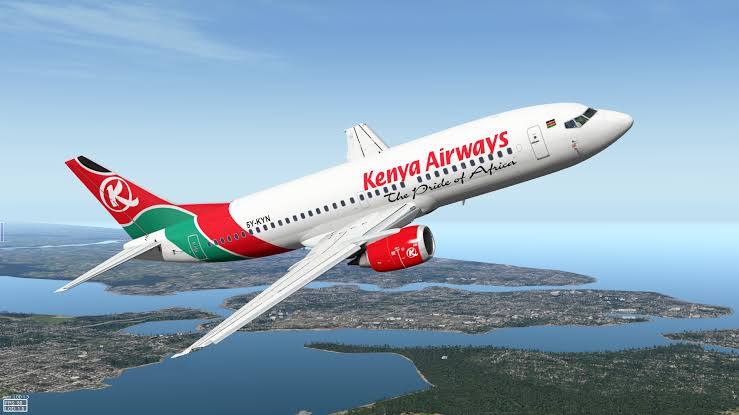Pilots pile pressure on IMF in KQ turn around strategy
By Christopher Owuor, July 21, 2021Benjamin Imende
A pilots lobby has petitioned the International Monetary Fund (IMF) and the State to stop financing Kenya Airways (KQ) unless they address audit queries raised over the years.
Kenya Pilots Association (KAPLA) says the struggling national carrier must implement the 2015 Senate, Seabury Consulting, Mckinsey Consulting and Deloitte Forensic Audit report, which fingers corruption by KQ management.
In a letter dated July 16, 2021 addressing the Bretton Woods institution, Kapla says Deloitte forensic audits revealed collusion with bankers, suppliers and oil companies to steal from the struggling airline through forgery and manipulation of accounts.
“It is unfortunate that to date, most of the Senate report recommendations have never been implemented, despite the comprehensive audit of the airline done through the inquiry.
A key element that arose from this inquiry is the general mismanagement at the airline,” Kalpa secretary general Murithi Nyagah told IMF Resident Representative Tobias Rasmussen.
“Interesting to note but not surprising, the same has been the common denominator amongst other documented audit reports and findings that have been conducted.
As your team engages the GOK in evaluating KQ, it is important that the 2015 Kenya Senate report is included and factored as you formulate solutions.”
Corporations scrutiny
The audit reports, which cost the airline millions of dollars, were developed through deliberative meeting sessions, Interrogative sessions, analysis of submitted documents and public hearings where all stakeholders were involved.
A Thursday 8th July statement on the update of reforms among parastatals by the National Treasury interesting also side stepped KQ as it evaluated some 18 out of the 260 state owned corporations.
“Kenya Airways where the government of kenya has a 48.9 per cent shareholding is not included in the financial evaluation and analysis, as it has retained an international aviation consultant to undertake a forward looking evaluation, which is still ongoing,” said Treasury.
Treasury said state corporations have time to implement measures that will improve their financial performance and efficiency by diversifying their revenue streams, better management of payroll and operating costs.
Actualising viable turnaround strategies was among conditions for a Sh255 billion loan facility from the IMF in March, which the government has committed to audit and reform the operations of nine key State-Owned Enterprises, among the Kenya Airways, to ensure their viability.
According to Kalpa, agreements between KQ and other partners should be reviewed or terminated arguing that they don’t favour the national carrier.
Staff rationalisation
“In the last 10 years, the airline has conducted at least 5 major staff rationalization exercises.
Yet despite the expensive audits and staff layoffs, poor financial management continued to persist,” the pilots said.
The pilots attached to the letter the ‘National Revival Carrier Plan’ where they endorsed the reports by demanding a complete overhaul of the board of directors, change of senior management and immediate stoppage of hiring of foreign workers.
They say the current officials are over-represented and lack certain skills and experience in the aviation industry to turn around and build the company.
“A major shortfall in Kenya Airways was due to inadequate expertise and experience in the management of the aviation sector.
The management has been making a series of uncalculated decisions that are detrimental to the organization, case in point, disposing of the Boeing 777 – 200 while other airlines are making profits using the same aircraft,” KALPA said in the Senate report compiled in 2015 but has never been implemented by KQ or the government.
Expansion of routes
“As Kenyans were being retrenched on grounds of redundancy, KQ was hiring foreigners for the same jobs through a broker (3rd party) at a higher cost accruing from the processing and payment of work permits, medical examination fees and upkeep,” the Senate report said.
The pilots want expansions of routes halted so that the national carrier can focus on satisfying the current clientele.
The audit report says that the process of acquiring aircrafts remains suspicious with some companies, which have local names being registered abroad and the list of directors being secret.
“KQ did not directly buy aircraft from the manufacturer but through intermediaries known as Samburu and Amboseli in Cayman Island. The deals entered into were questionable.
The intermediaries were to provide loan guarantees to acquire aircraft and lease them over to Kenya Airways.
These contracts were chiefly responsible for the rapid and crippling deterioration of the revenue and capital accounts of Kenya Airways,” the 2015 Senate report said.
They want KQ to apply prudence in outsourcing of services without compromising the morale and efficiency of the existing employees.
